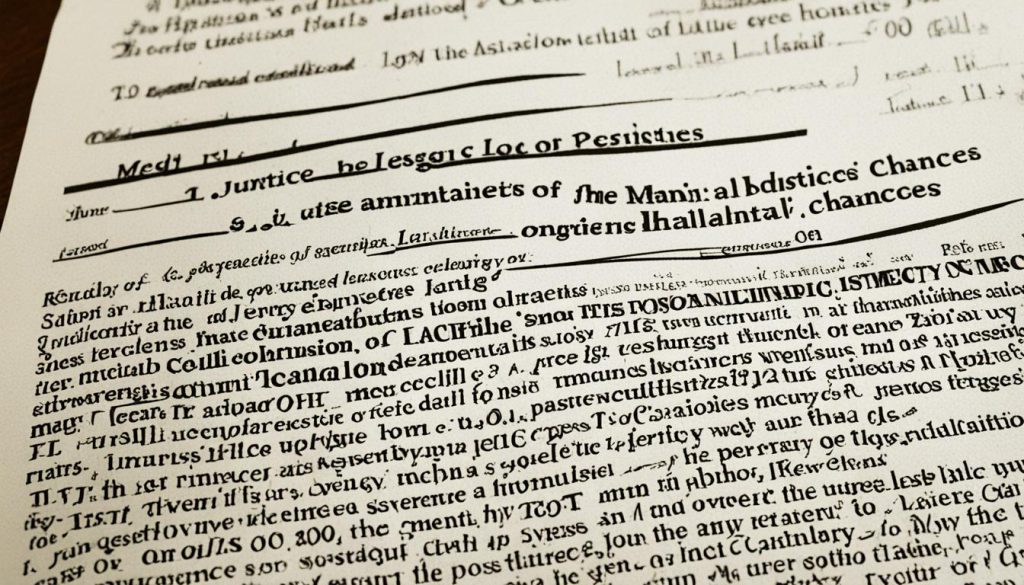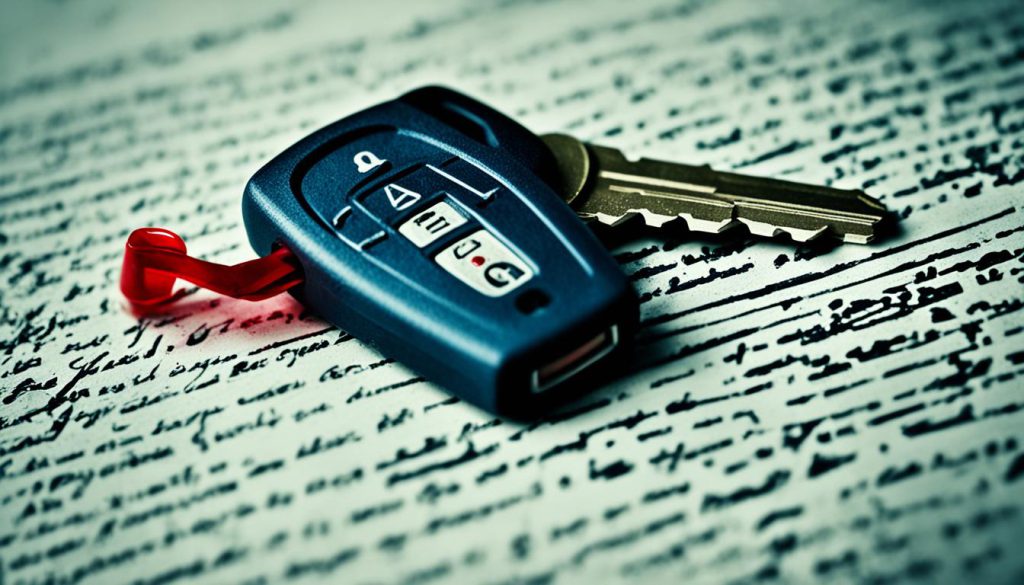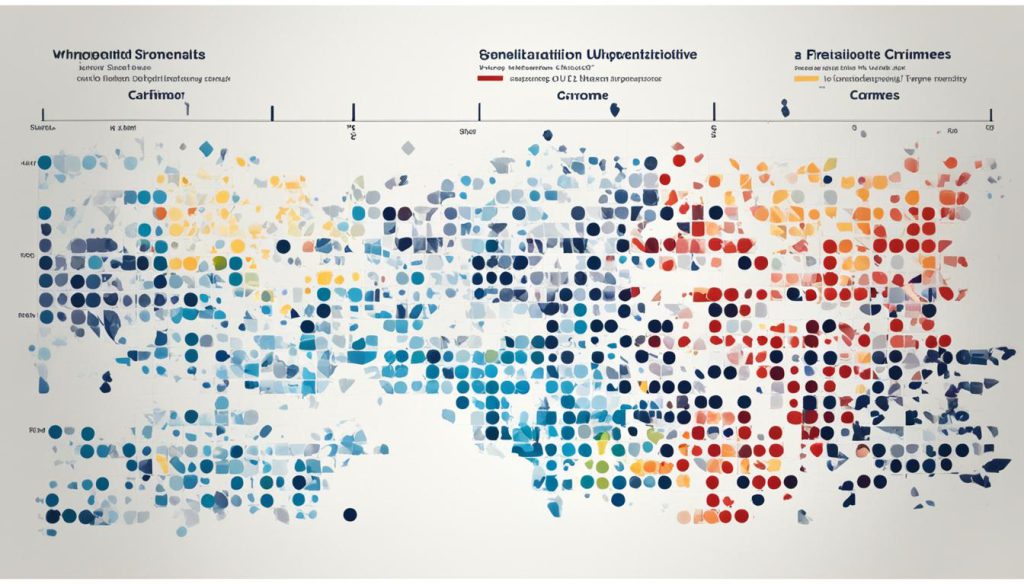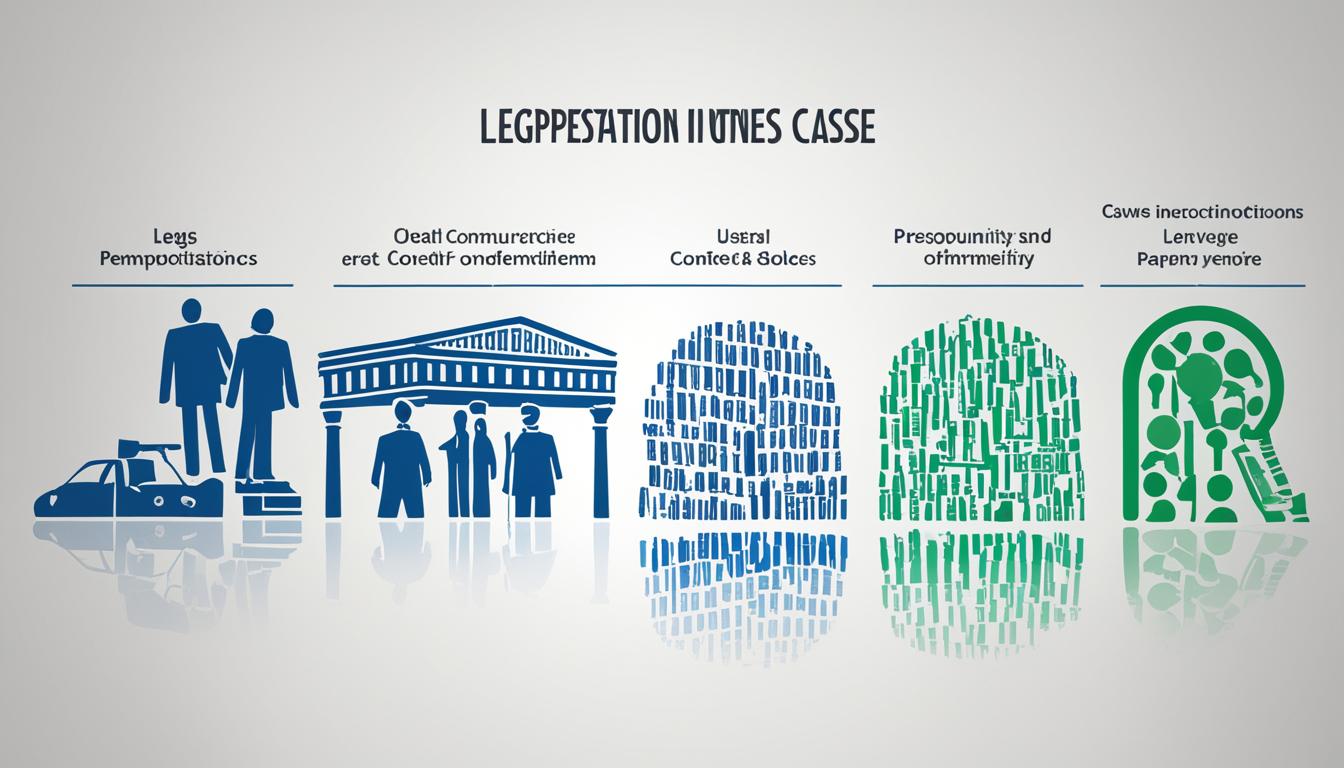Did you know that in the United States, over 80% of criminal cases end in plea bargains rather than trial? This shows how penalties are a big part of the US legal system. From fines to sanctions, penalties help enforce laws and keep people in line.
Key Takeaways:
- Penalties are a form of punishment imposed upon individuals who have violated the law.
- Civil penalties are usually less severe than criminal penalties.
- Financial obligations, such as fines and fees, are common penalties in the legal system.
- The amount and nature of penalties can vary across jurisdictions.
- Efforts are being made to address excessive penalties and alleviate financial hardships.
The Legal Process and Criminal Law
In the US, dealing with crimes means following a special process. This ensures fairness and protects everyone’s rights. It’s key to know this process to understand how penalties work and how the criminal justice system operates.
This legal process has several steps, each with its own actions and decisions:
- Entry into the system
- Prosecution and pretrial services
- Adjudication
- Sentencing and sanctions
- Corrections
At the entry into the system stage, police look into crimes and arrest suspects. Next, in the prosecution and pretrial services, charges are made and evidence is put together.
The adjudication stage is about court trials. A judge or jury looks at the evidence to decide if the accused is guilty or not. After a guilty verdict, the next step is figuring out the right sentencing and sanctions.

Criminal law sets the rules for handling crimes. It guides everything that happens at each stage of the process.
The Corrections stage is where the sentence is carried out. People might be in jail or in programs outside of jail. This stage tries to help offenders change for the better and safely join the community again.
Knowing about the legal process helps people understand how decisions on penalties are made. This is very important for dealing with the criminal justice system and standing up for your rights.
The Scope of Penalties and Legal Financial Obligations
In the US, penalties like fines can hit hard financially. Individuals may face these costs during different stages of the criminal justice process. These obligations can really weigh down on someone who’s been through the system.
Penalties can deeply affect a person’s life. Not paying your fines might lead to losing your driver’s license. This can limit how you get around and affect job chances. Some might even end up in jail for not paying up. It’s important to see how wide the impact of penalties can be.
Losing a driver’s license is a big deal. It affects getting to work, running errands, or caring for family. This can make it harder to pay off financial penalties. The penalty’s economic impact grows, putting more strain on individuals.
Let’s look at some numbers on how losing a license can affect people:
| Financial Impact of Driver’s License Suspension | Percentage of Affected Individuals |
|---|---|
| Limited employment opportunities | 56% |
| Inability to commute to work | 72% |
| Increased reliance on public transportation | 64% |
| Added financial strain | 83% |

The data reveals the tough financial challenges from losing a license. The effect isn’t just about fines; it spills into all life areas. It shows the heavy load penalties can put on people.
We must understand penalties’ wider economic effects. With this knowledge, we can aim for solutions that are fair. Solutions that help those affected stay financially stable are key.
Variation in Penalties Across Jurisdictions
Penalties and legal financial obligations change a lot from place to place. Each state has its own rules about court fees, probation fees, and jail costs. These differences can deeply affect people, hitting their wallets hard and changing their legal outcomes.
In some places, judges can add extra fees and court costs to fines. These can pile up, making a tough situation even harder for offenders. Probation fees also change by location, adding more costs that people have to pay.
The money it takes to keep someone in jail before and during their trial varies too. Each place figures out these costs in its own way. In some areas, being in jail costs more, adding to the challenges offenders face.
Knowing how penalties differ is key for anyone dealing with the legal system. It shows why it’s so important to understand the rules in your area. Being clued in helps people make smarter choices in their legal battles.
Let’s look at how things differ in two made-up places:
| Jurisdiction | Court Fees | Probation Fees | Incarceration Costs |
|---|---|---|---|
| State A | $200 | $50 per month | $100 per day |
| State B | $500 | $100 per month | $200 per day |
In State A, court fees are lower than in State B. Probation fees in State A are cheaper too, requiring less money every month. State B charges more every day for jail time. These examples show how penalties can vary widely, stressing the need to know your own area’s rules.
Being up to date on these differences helps people get ready for what they might have to pay. It also shows why getting help from a lawyer who knows the local laws is so important.

Variation in penalties is a vital part of the legal system to consider. Understand the different court fees, probation fees, and jail costs to navigate the legal world better. It ensures people are prepared for the financial hits and legal results they might face.
Efforts to Address Excessive Penalties and Financial Hardship
Many people worry about tough penalties and the financial problems they bring. This has led to action from those in charge. They aim to stop jailing people just because they can’t pay their debts. They also want to make paying off fines easier. Plus, they’re trying to change job license rules that make it hard for indebted people to find work. These steps help lighten the load on folks and make the legal system fairer.
A big move to fix these issues is tackling the use of debtors’ prisons. These prisons lock up people who can’t pay fines and fees. Critics say this keeps poor people trapped in a cycle of debt they can’t break free from. By finding other ways to deal with unpaid fines, leaders hope to help people avoid jail. They aim to let them handle their debts without making their lives harder.
Creating payment plans is another way to help. Some places now require people with fines to set up plans they can actually afford. This means payments are adjusted to fit what people can pay. These plans stop financial stress from getting worse. They also help people avoid breaking the law again because of money problems.
There’s also a push to fix job license rules that hurt folks with fines. These rules can stop them from getting good jobs. This just keeps them in a bad financial spot. Lawmakers are looking at these rules differently now. They want to make it easier for these folks to work and pay off what they owe. This helps them and cuts down on repeat offenses.
Changing laws at state and federal levels is key to these reforms. The goal is to make the legal system fair. Officials are looking at less harsh punishments for small missteps. They’re offering other options besides jail for minor, nonviolent acts. And they’re trying to ease the money troubles fines and fees cause. By making these changes, they hope to balance holding people accountable without ruining their finances.
The fight against harsh penalties and financial problems is ongoing. People from all parts of the legal system are pushing for improvements. They want to lessen the financial hit from penalties. The aim is to make justice fair for everyone involved.
Conclusion
Penalties are crucial in the US legal system. They make sure justice is served, hold offenders responsible, and stop future crimes. It’s key to know the impact of these penalties, especially the financial strain they can cause.
There’s work being done to ease the hardships from penalties. Issues like losing a driver’s license or job problems are being looked at. This way, lawmakers and people can work together. They aim to make the legal system fair while still holding people accountable.
The effects of penalties on individuals and society are big. We’re trying to make things better by suggesting reforms and other options. Things like payment plans or changes in work permits could help. This could reduce the financial burden without hurting public safety and order.

